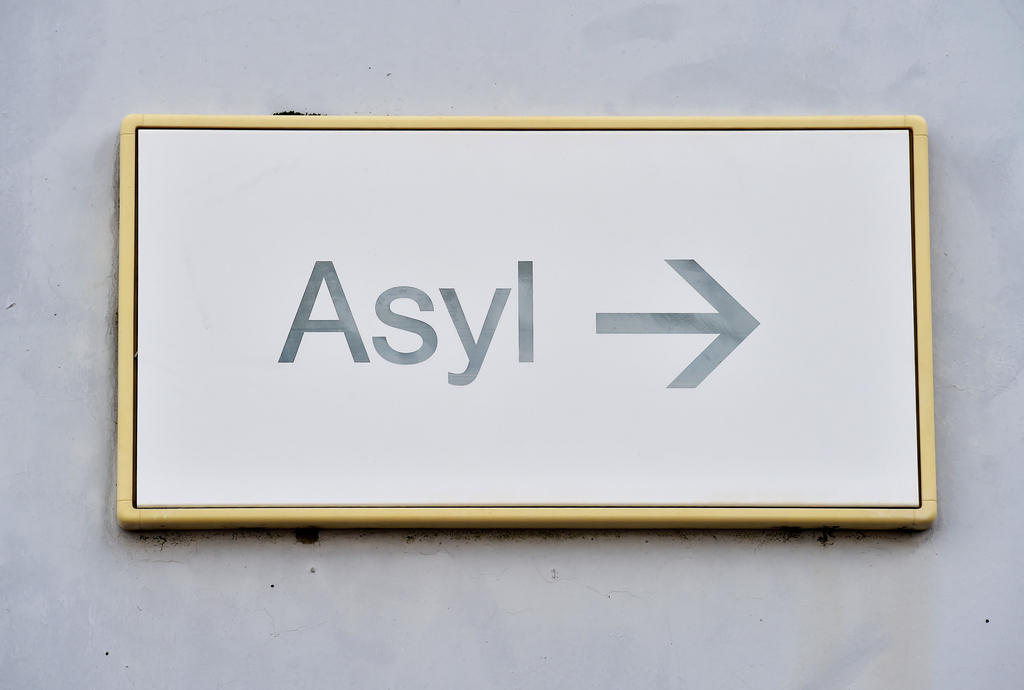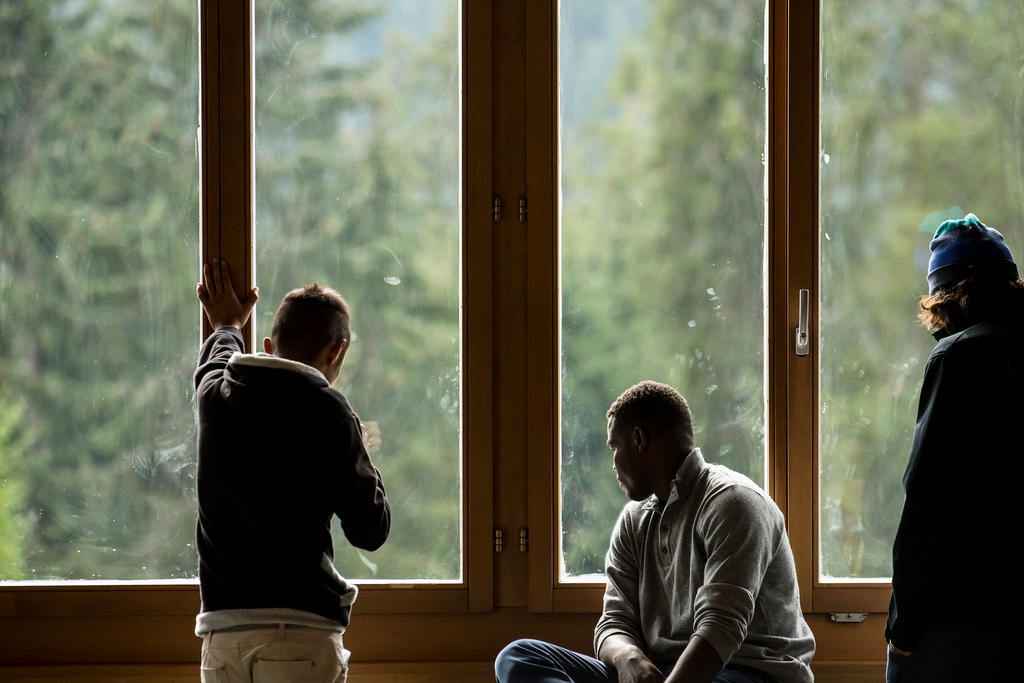Asylum procedures can threaten mental health of migrants

Asylum-seekers often experience traumatic events before migrating to Europe, but even after they obtain refugee status, stressful conditions can foster or exacerbate mental health problems. That’s the conclusion of ten years’ worth of psychological research.
Three researchers from the Universities of Geneva (UNIGE) and Neuchâtel (UNINE) analysed 15 studies conducted between 2007 and 2017 across European countries, including Switzerland.
They concluded that while events that occur prior to migration influence the mental health of asylum-seekers and refugees, “the majority of stress factors are directly related to post-migration living conditions and restrictions.” Such conditions may include constantly being moved between asylum centres, an insecure legal status, and social isolation.
One study of asylum-seekers in Switzerland, for example, showed that 13.7% suffered from mental health disorders. Another study of asylum-seekers in canton Zurich found that 33% suffered from depression, and 24% from post-traumatic stress disorder (PTSD).
Stricter conditions
About 22% of those who seek asylum in Switzerland are granted refugee status – and the process can take a while. “An asylum application can last months or years, during which the [asylum-seeker] lives in a state of uncertainty and constant anxiety, which can reawaken troubles in a mental state made fragile by previous experiences,” explained co-author Laure Kloetzer, a professor in the UNINE Faculty of Arts and Social Sciences, in a statement on Friday.
Betty Goguikian Ratcliff, a researcher in the UNIGE Faculty of Psychology and Educational Science, added that asylum conditions are becoming stricter across Europe, which adds to the problem.
“Hardening of reception conditions generates misunderstanding, exhaustion, and psychological distress among already vulnerable populations, who expect to be welcomed and find refuge in Europe,” Ratcliff said.
The result of these stresses and worries can lead to alcoholism and depression, and even respiratory difficulty or physical pain.
“These somatic complaints are real pain, but often without a physical reason. They are the expression of significant psychological distress, linked to issues of migration, that the best reception conditions could partly avoid,” added Gail Womersley, a UNINE researcher who interviewed asylum seekers in camps in Athens, Greece.
Insecurity and isolation
During the asylum-seeking phase, delays in the processing of asylum applications, fear of repatriation, dependence on social welfare, loneliness, and poor housing conditions can all contribute to mental health issues. But even after asylum has been granted, refugees or those with a temporary right to remain may continue to suffer from poor language proficiency, financial and housing difficulties, and lack of cultural resources.
The researchers conclude that the implications of their findings “reach far beyond the individual” and have “social and economic significance for Switzerland”. The authors recommend shortening asylum processing times and eliminating the “criminalisation” of asylum-seeking.
“An inclusive policy that recreates a sense of community is the best way to create the conditions for resilience. It’s a psychosocial approach to re-establish and integrate people who have lost their bearings,” Ratcliff says.
“The findings were publishedExternal link in the online magazine of “On the Move”, the National Centre for Competence in Research (NCCR) on migration and mobility.

In compliance with the JTI standards
More: SWI swissinfo.ch certified by the Journalism Trust Initiative




You can find an overview of ongoing debates with our journalists here. Please join us!
If you want to start a conversation about a topic raised in this article or want to report factual errors, email us at english@swissinfo.ch.